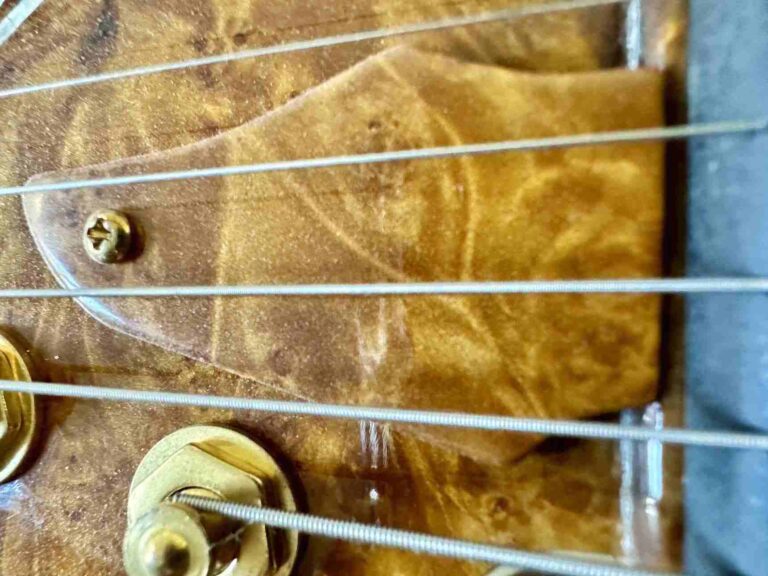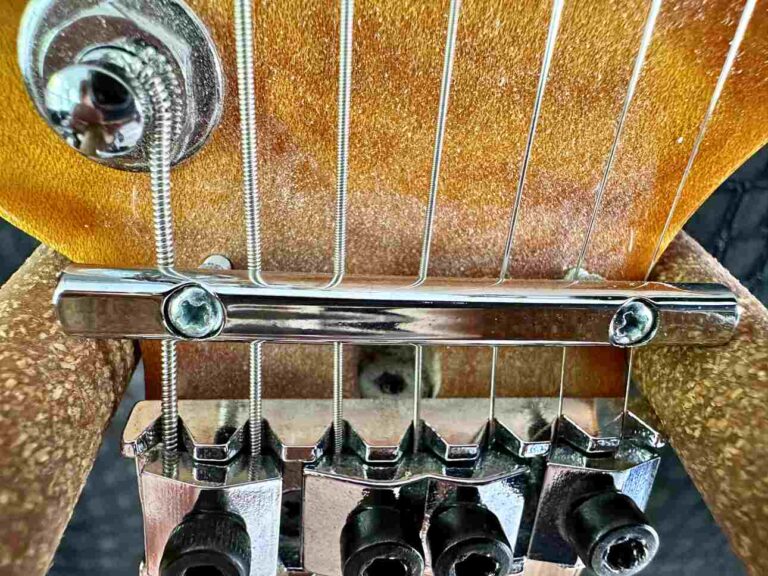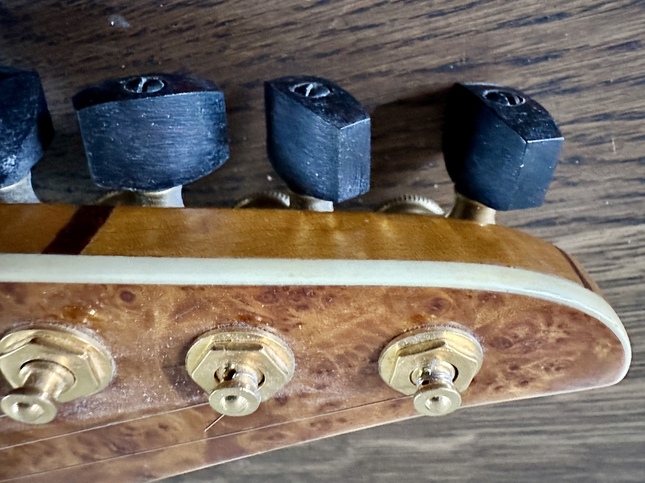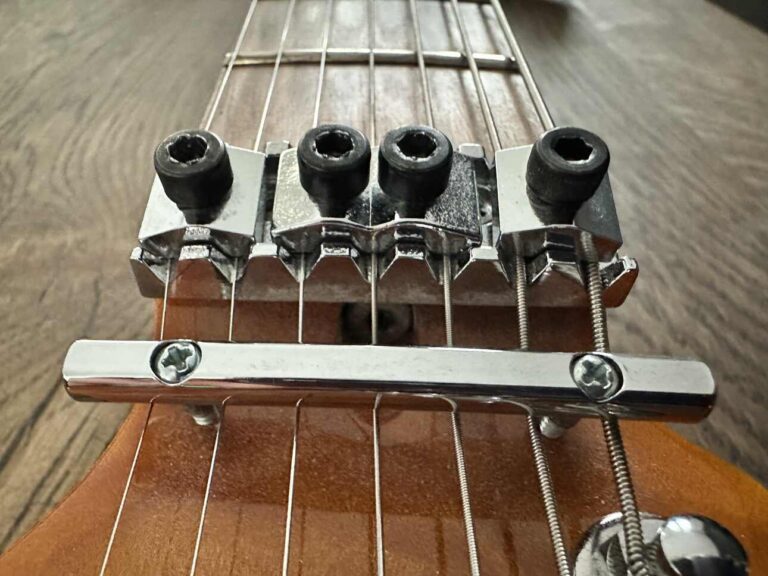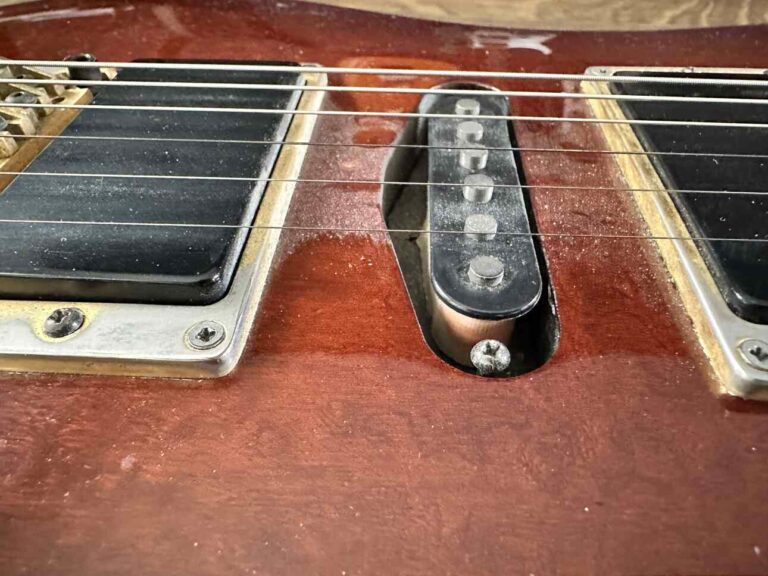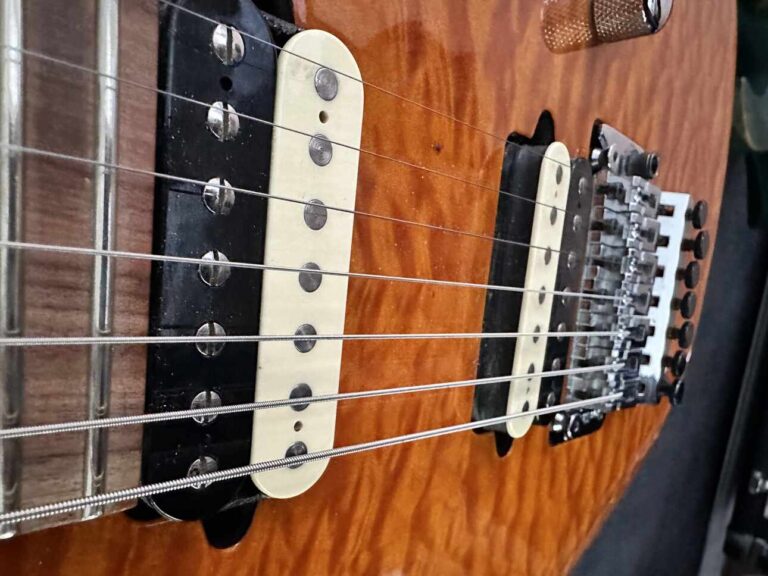To What Extent Do Pickups Make a Difference in Guitar Tone?
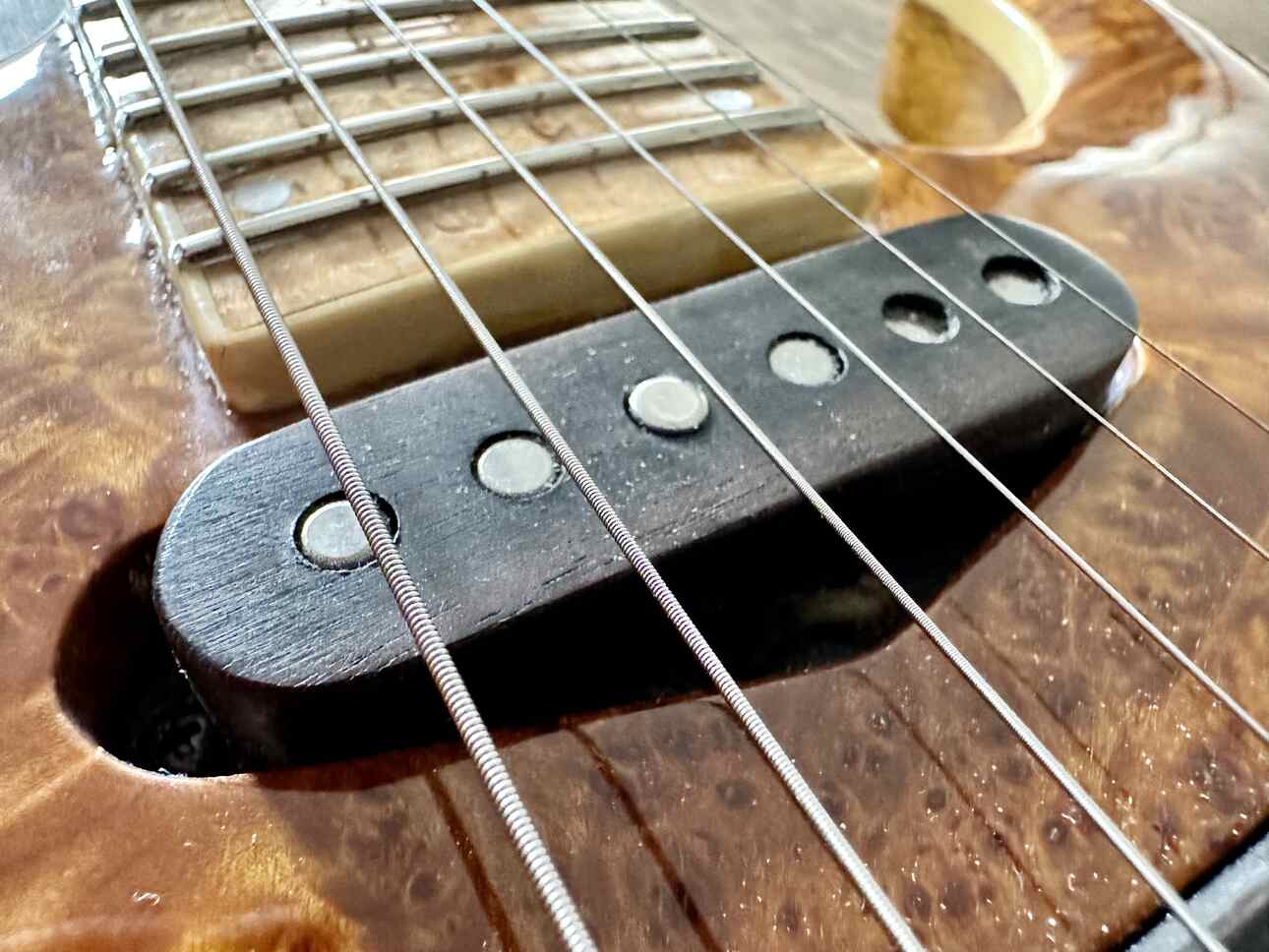
Guitar pickups are an essential part of shaping the sound of your electric guitar. They pick up the string vibrations and turn them into electrical signals you can hear through a speaker.
Where you put the pickup on your guitar and what it’s made of can greatly affect the sound. You can achieve different tones, from soft and mellow to sharp and punchy.
This helps you find the perfect sound for your music, playing style, and what sounds good.
Also, your axe can respond better to your playing if the pickup is made well with good materials.
I have often heard and read that the pickups determine about 80 percent of your sound. I don’t know if this is true, and I find it a bit ridiculous to put a percentage on it.
After all, how to measure it? In any case, the pickups play an important role in the sound of your guitar.
Wanna know more about it?
Let’s dive in!
Key Takeaways
- Guitar pickups are essential in determining the tone and sound of an electric guitar;
- Different pickups offer a wide spectrum of sounds. It gives you the freedom to choose what suits your style;
- Swapping out your guitar’s pickups and paying attention to their quality, design, and placement can improve your play and your sounds.
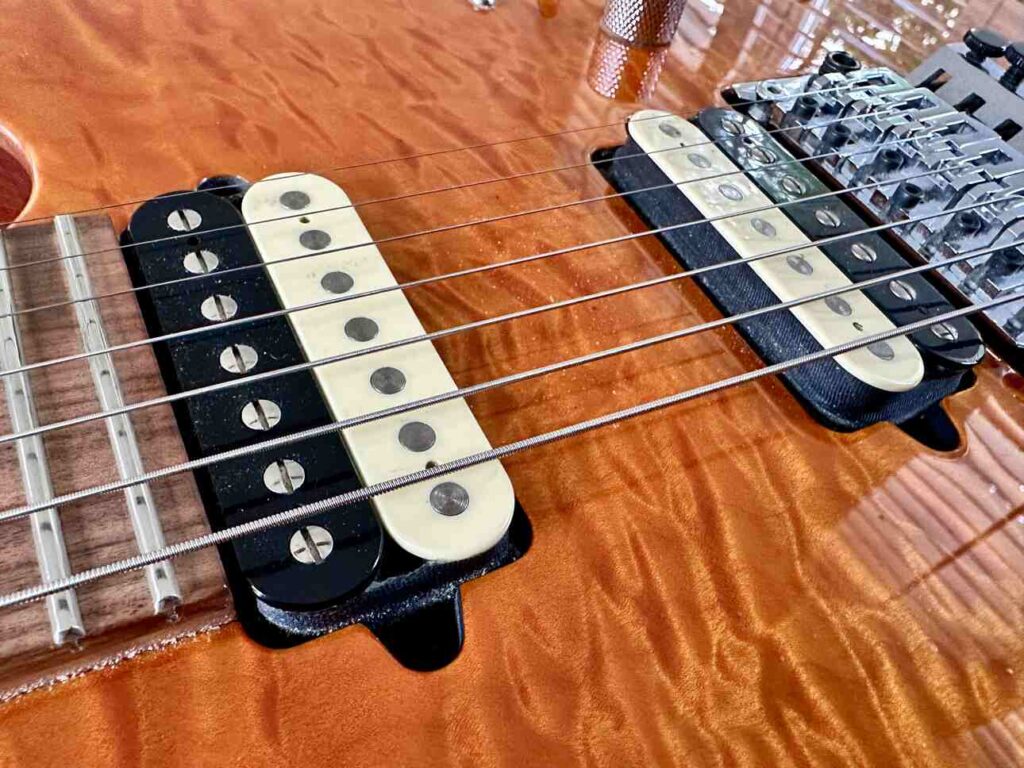
Understanding Guitar Pickups
Basic Components of Pickups
Pickups are key parts of electric guitars. They turn string vibrations into electrical signals. They consist of a coil wrapped around magnets, forming a magnetic field.
Strumming a guitar string causes it to move in this magnetic field. It produces an electric current. This current travels to an amp and turns into the sound that blasts from the speaker.
Types of Guitar Pickups
Electric guitars typically have one of two pickup types: single-coil or humbucker. A special kind of single-coil pickup, P90, is also available.
- Single-coil pickups: These pickups, characterized by their single coil of wire, are widely used and are known for a crisp, bright sound. Iconic guitars like the Fender Stratocaster and Telecaster often feature single-coil pickups;
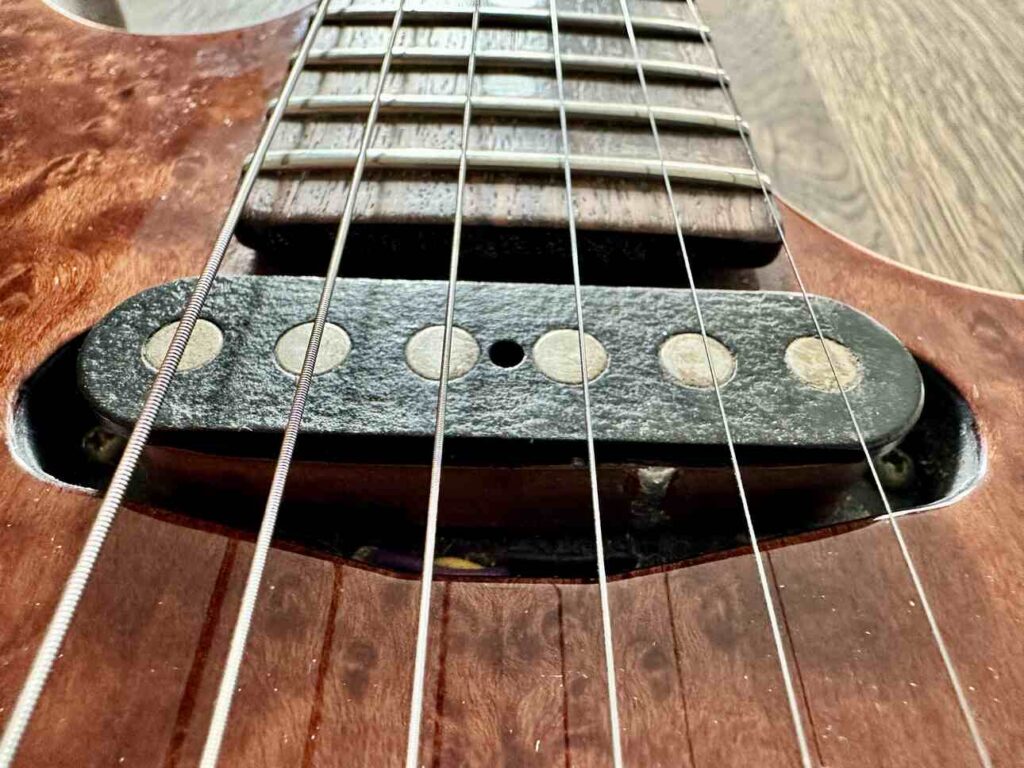
- Humbucker pickups: By pairing two coils, humbuckers cut unwanted noise and offer a fuller, richer tone. They’re a staple in guitars like the Gibson Les Paul and some Fender Telecaster models;
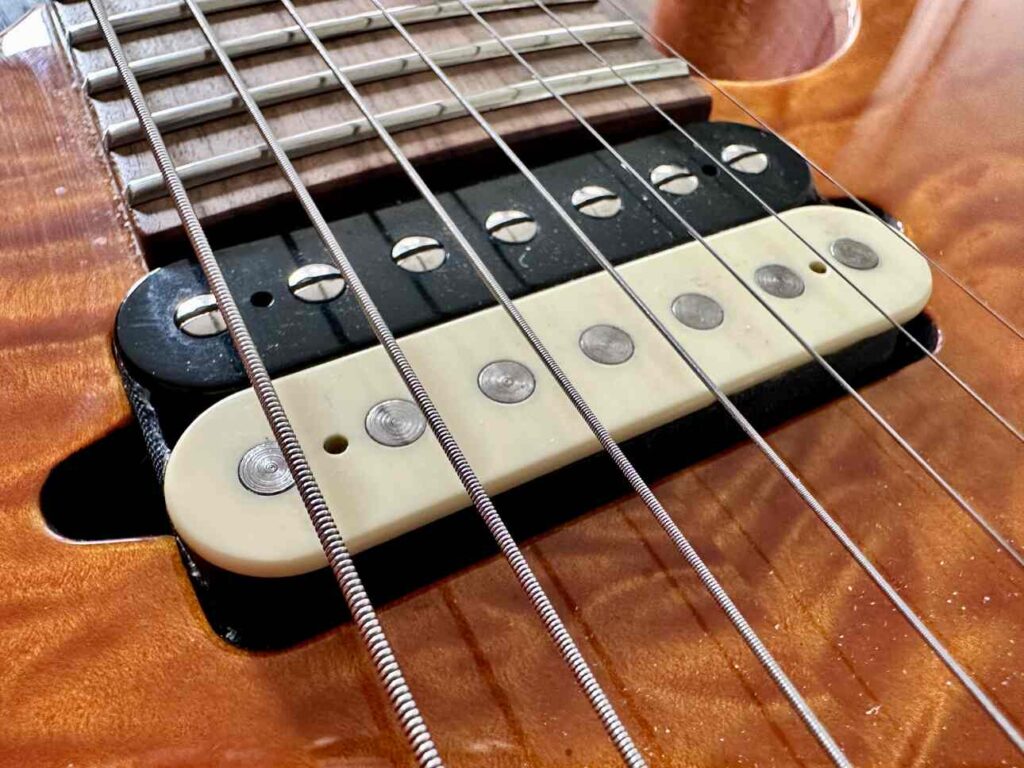
- P90 pickups: P90 pickups are a type of single-coil pickup that produces a clear and warm tone when played clean. They also deliver plenty of grit and bite when driven harder. P90s are often described as having a fat, midrange-heavy sound with a raw edge. It gives them a unique character compared to humbuckers or standard single coils.
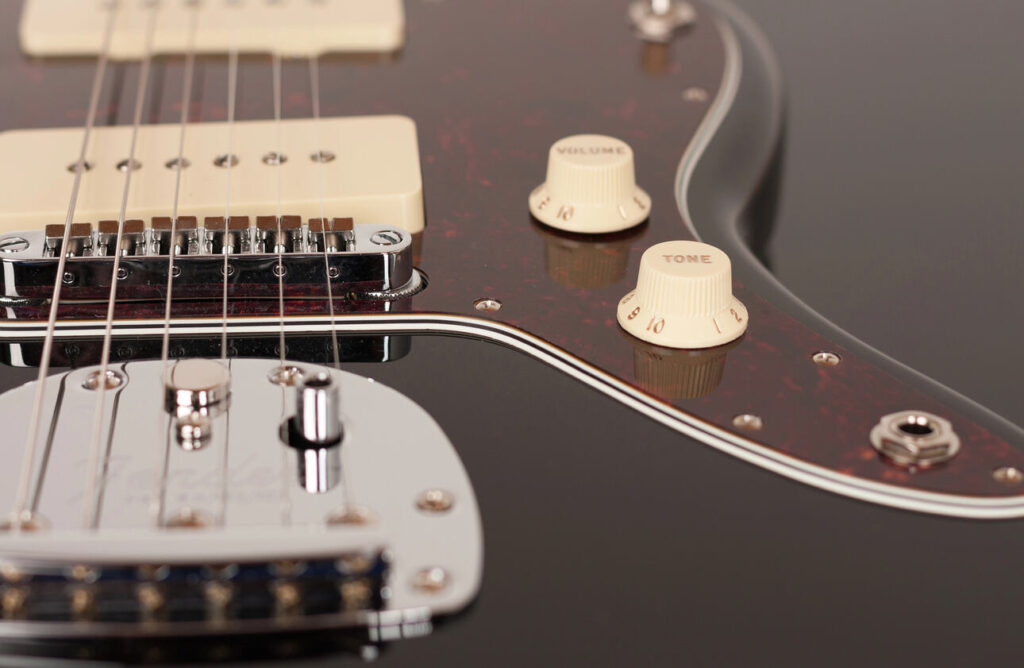
The Role of Pickups in Tone Production
The variety of pickups and their arrangements greatly influence your axe’s sound and how it resonates.
Single-coil pickups typically deliver a sharp, clear tone. Humbuckers usually give a bolder, more potent sound.
The location of the pickup on your guitar also plays a role. Pickups near the bridge tend to offer a more piercing, treble-rich sound. Those near the neck usually provide a deeper, bass-focused tone.
The Impact of Pickups on Guitar Tone
The type of pickup and its placement on your axe can lead to distinct tonal differences.
Different pickups, such as single coils and humbuckers, have unique effects on sound. Single coils are known for a crisp tone, while humbuckers provide a fuller sound.
Where the pickup is located also matters. Pickups closer to the bridge give a sharper tone, while those near the neck have a richer bass quality.
Single-Coil vs Humbucker
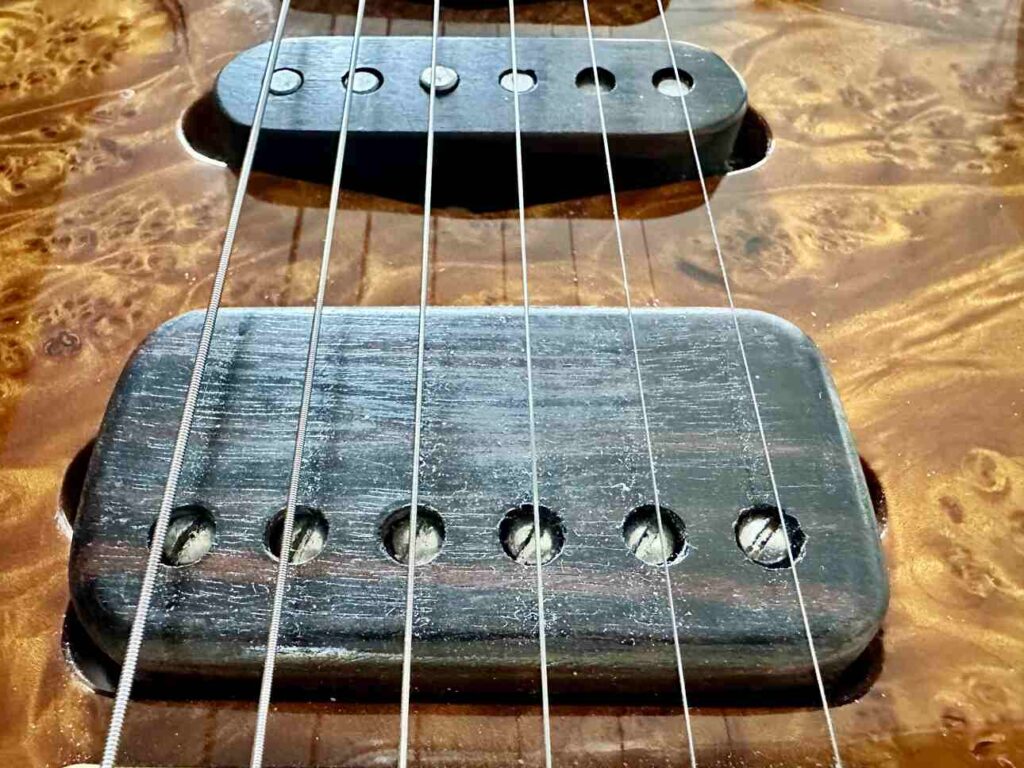
In the pickup world, single coils and humbuckers are the primary types.
Single-coil pickups are known for their clear and bright sound. But they can pick up interference, leading to a hum.
In contrast, humbuckers offer a richer and warmer tone. Their dual-coil design also helps keep noise at bay.
Both types shape the guitar’s tone in different ways. That’s why selecting a pickup that fits your preferences and the sound you’re after is crucial.
Active vs Passive Pickups
Passive pickups use a magnetic field to convert string vibrations into electrical signals. This is how they produce your guitar’s sound. They’re known for their organic, dynamic, and nuanced sound.
Active pickups use a battery-powered preamp. They are recognized for their higher output, longer sustain, and uniform sound.
Some players prefer the enhanced control and vigor of active pickups. Others might favor the natural resonance and character of passive pickups. Your preference should be guided by your style and the genres you play.
Pickup Position and Tone Variation
The location of a pickup on your guitar is key to the nuances of the sound it produces.
Electric guitars often feature pickups in various spots like the bridge, middle, or neck.
Bridge pickups are known for their bright, biting tones, highlighting high-frequency harmonics. Neck pickups offer a mellow, smooth sound, emphasizing lower frequencies.
Factors Influencing the Quality of Sound
Several elements can affect the sound quality of your guitar. The craftsmanship of the pickup is a major factor. It can quite influence your instrument’s tone and how it plays.
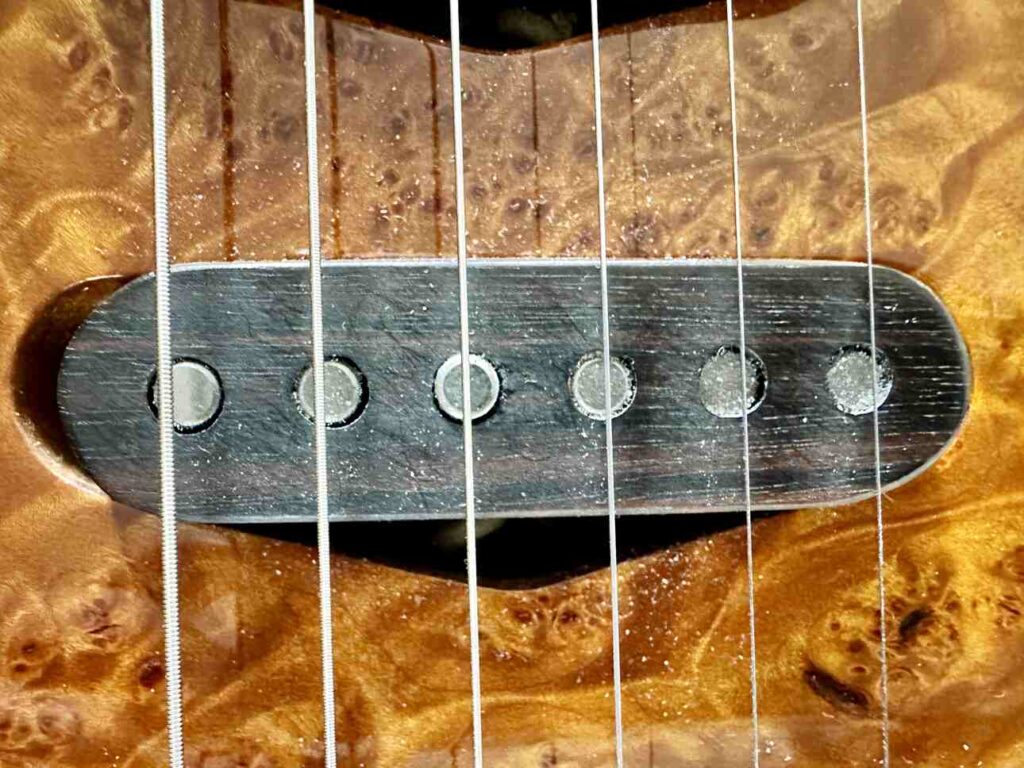
Materials and Design
The materials used in making your guitar pickup shape its sound.
The selection of wood or metal affects the instrument’s resonance and tone. The pickup’s design and shape influence its sound. They accentuate certain frequencies for a unique tone.
Guitar Body and Pickup Interaction
The guitar body and its pickups define the instrument’s sound.
The type of wood and where the pickup sits all influence the tone. Guitar builders match these factors to get the desired sound and feel.
Electronics and Wiring
The guitar pickup electronics are crucial for sound quality. The pickup’s signal goes through a circuit that tweaks and boosts the sound.
How the wires are wound, and the pole pieces are arranged can lead to distinct tones. Active pickups that use batteries can give more power and flexibility when you play.
How your guitar is wired and the quality of its parts can change how it sounds. That’s why keeping your guitar’s electronics in good shape is important to keep it sounding great.
The type of wood, the guitar’s body shape, and where the pickup sits all influence the tone
Upgrading Your Guitar with New Pickups
When to Consider Upgrading
Buying new pickups can be a game-changer for your guitar’s sound and style.
As you get better at playing, you might find that your current pickups can’t do everything you want. You might want a new sound that fits your current playing style.
Upgrading might be the right move if you’ve got a ‘budget guitar’ and are ready for better pickups.
Choosing the Right Pickups for Your Style
When picking new pickups, consider your style and the music you like to play.
Different pickups have sounds that can change how your guitar feels and plays.
- Single-coil pickups produce a clear, sharp sound. It’s suitable for blues, country, and classic rock;
- Humbucker pickups have a warmer, fuller sound that fits well with hard rock and metal;
- P-90 pickups are in the middle, with single-coil and humbucker qualities. It makes them flexible for various styles.
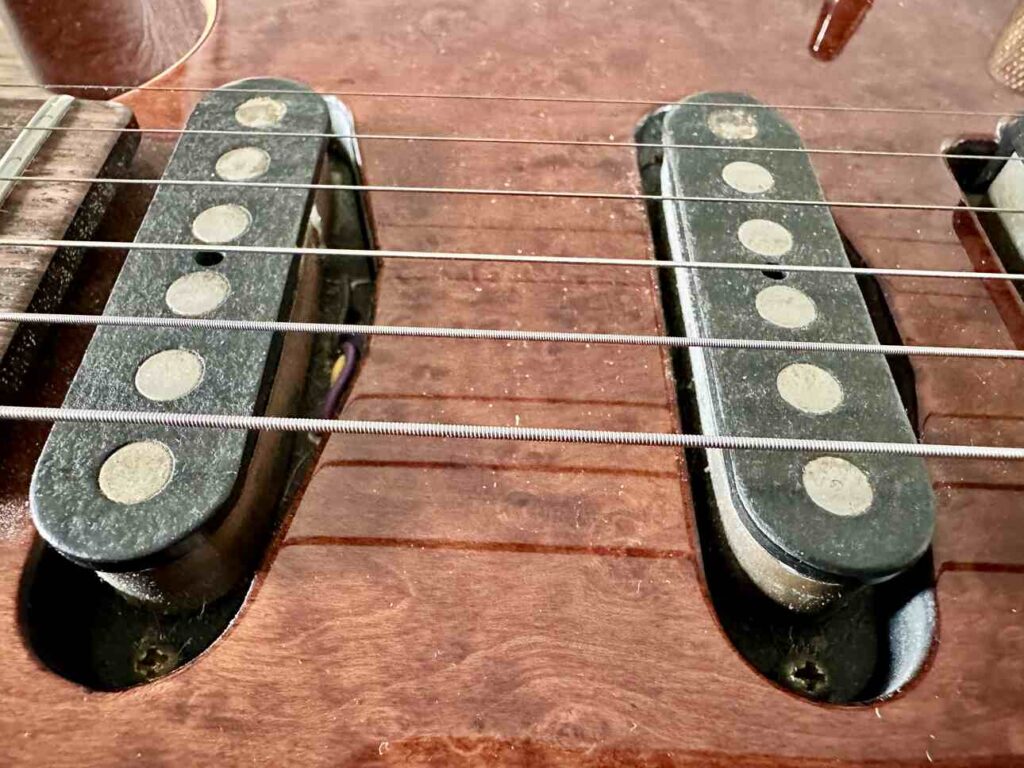
A wide range of pickups out there won’t break the bank. Try out a few to find the sound that’s just right for you and your guitar.
Installation and Calibration
After picking your new pickups, installing and adjusting them correctly is key. Most pickups come with a guide, but getting help from a pro is smart if you’re unsure.
A pro can ensure that your pickups are installed correctly and set up well.
Pickups in Relation to Other Equipment
Interaction with Amplifiers and Pedals
Your electric guitar’s pickups are a big part of what makes your sound unique. They work with your amp and pedals uniquely to make your tone.
The type of pedal you use can change how your pickups sound. Like distortion or overdrive, pedals won’t sound the same with single coils as with humbuckers.
Adjusting EQ and Effects
The EQ on your guitar and how you use effects pedals can dial in the sound you want. The kind of pickup you’ve got plays a big part in your tone.
Playing around with different EQ and pedal setups is a great way to find the sound that best fits your style.
The Complete Signal Chain
When figuring out the role of pickups in your sound, you need to look at the whole signal chain. This includes your guitar, pickups, pedals, amp, and speakers.
Here’s a quick look at a usual signal chain:
- Guitar: Shape, wood, and other parts affect the tone;
- Pickup: Turns string vibrations into an electric signal;
- Pedals: Add effects like reverb, delay, or distortion to the sound;
- Amplifier: makes the signal louder, and its EQ settings can shape the tone;
- Speaker Cabinet: The design and size can change the final sound you hear.
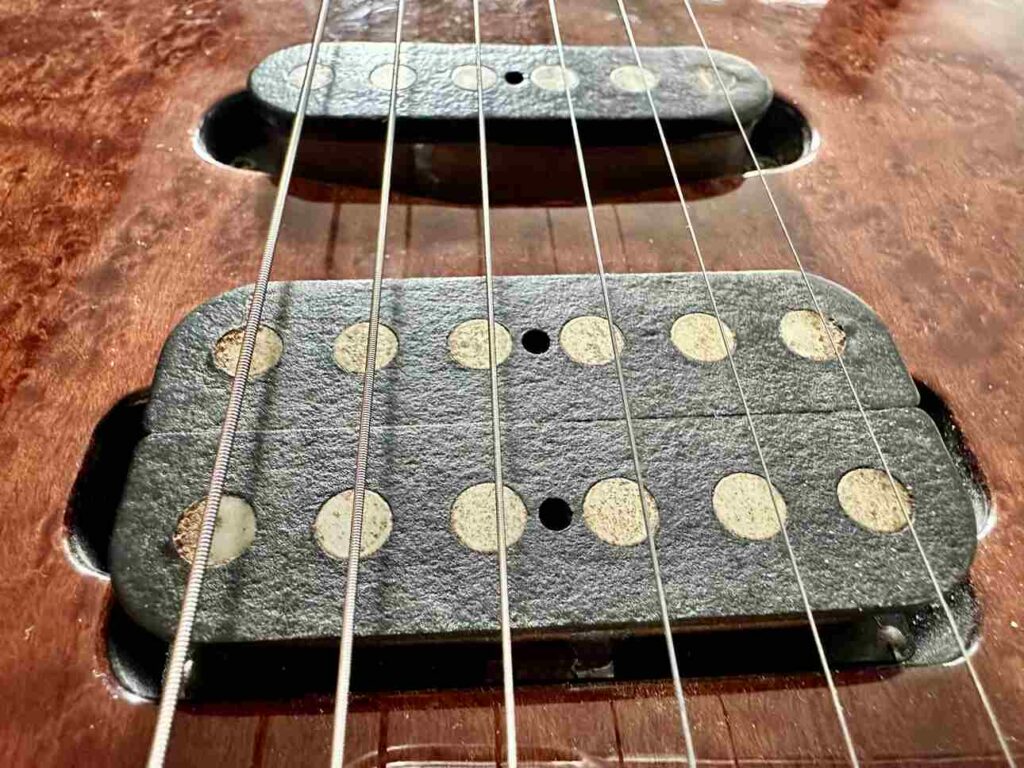
Practical Insights and Tips
Listening and Analyzing Tone
Developing Tone Awareness: Getting how pickups change your guitar’s sound means sharpening your listening skills. Pickups are key in deciding how loud, bright, or deep your guitar can sound.
Every pickup uses different stuff and has its own design, leading to many tones. Spend time hearing how different pickups make guitars sound to get a feel for what they do to the music.
The Art of Experimenting with Pickups
Experimenting is a big part of finding the right sound with guitar pickups.
Switch between single-coil, humbucker, and P90 pickups, and you’ll notice how each one changes your tone.
This trial-and-error is great for figuring out how each pickup type shapes your sound. It’ll also help you pick the best one for your playing style and desired sound.
Maintaining and Troubleshooting Pickups
It is important to look after your guitar pickups to keep them sounding their best. Look for problems like noise, hum, or volume drops.
You can often fix these with easy solutions. For example, you can tighten anything that’s come loose or clean dirty magnets.
Knowing how to spot and fix common pickup problems is key to keeping your guitar sounding great and extending the life of your pickups.
Frequently Asked Questions
Are some types of pickups better suited for specific music genres?
Pickups can shape your music; some fit certain styles better than others.
Humbuckers have a rich, full sound that’s great for rock and blues, and they’re quieter, too. Single coils have a clearer, sharper sound that is perfect for country and surf tunes.
Could upgrading pickups in a budget guitar significantly improve its sound?
Putting better pickups in a budget guitar can boost its sound. The guitar’s build and what it’s made of matter, too. But new pickups can add clarity, longer sustain, and better response.
New pickups are a smart move for a budget-friendly way to get a better sound from your guitar.
How do pickup constructions, like Humbuckers and single-coils, affect guitar tone?
Pickup types like humbuckers and single coils shape your guitar’s sound differently. Single coils give you a bright, clear tone with sharp highs and solid lows.
They can pick up more noise and interference, though. Humbuckers have two coils that reduce noise and give a warmer, thicker sound. Excellent for heavy chords and leads.
Are expensive pickups worth the investment for tone improvement?
High-end pickups might improve your sound with better materials and construction. Whether they’re worth it depends on your guitar and how you play.
Sometimes, the difference is clear and justifies the cost. Other times, you might hear little change compared to cheaper ones.
It’s a good idea to test various pickups before spending money. The pricier ones may give you the sound you want, but it’s worth seeing if they’re worth it.

